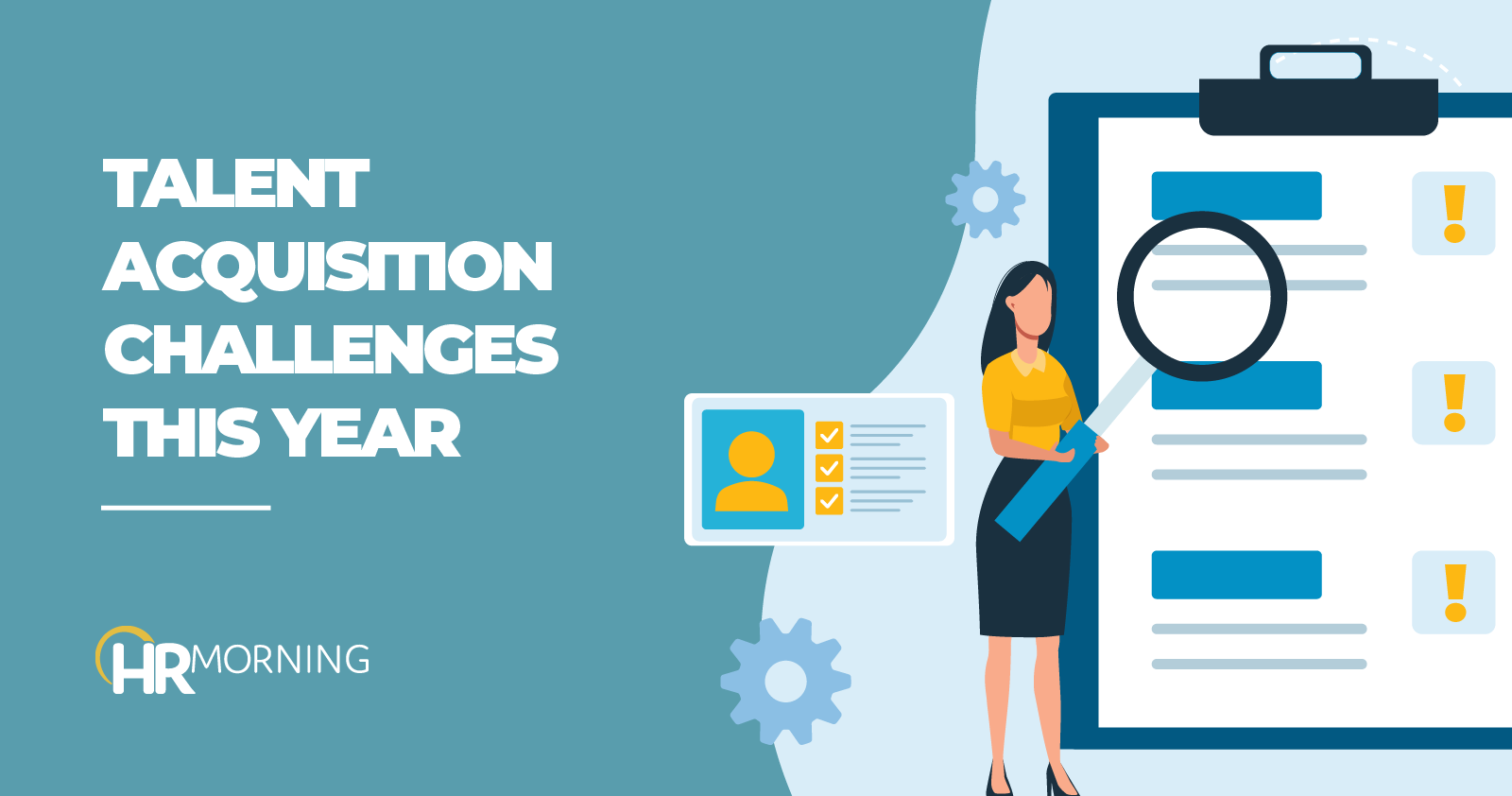Top 7 talent acquisition challenges today

We know that 2023 was the “year of the worker” – with new NLRB regulations and a competitive market, workers had the upper hand. And, as a result, employers were scrambling to find and keep the best talent.
Now, the pendulum has swung back, evidenced by trends like “The Big Stay.” But that doesn’t mean that talent acquisition challenges are gone.
Far from it, according to a recent ZipRecruiter report: Employers are still facing an onslaught of talent acquisition challenges.
Talent acquisition challenges: Top 7
ZipRecruiter’s report , which surveyed 2,000 talent acquisition pros and hiring managers in the U.S., shines a light on the talent acquisition challenges.
“Employers continue to confront shortages of candidates with the right skills at the right price,” says Julia Pollak, chief economist at ZipRecruiter. “With those labor shortages here to stay, given current demographic trends, it makes sense for employers to invest in long-term solutions rather than temporary bandaids.”
Here are some of the biggest talent acquisition challenges pros are facing this year.
1. Talent shortages
One of the top talent acquisition challenges of this year is that there’s simply not enough talent.
When asked to list their top three recruitment challenges, 57% of employers said they lacked qualified candidates, and 46% said they had too few candidates of any kind, according to the report. And nearly half (41%) said they had failed to fill a vacancy in the prior six months because the candidates available wanted more pay than they were able to offer.
2. Difficulty recruiting diverse candidates
Even when qualified candidates are found, they may not be exactly what companies are looking for. Fifty percent of employers reported a lack of underrepresented candidates in the talent pipeline, with 43% noting a lack of applicants of color, and 42% a lack of female applicants.
Plus, over half noted a lack of diversity in employee referrals as one of the most important barriers to diversity. Other barriers noted were:
- Inflexibility regarding candidates’ backgrounds
- Outright bias or discrimination, and
- Lack of diversity among existing employees.
3. Missed connections
Ghosting is a real problem for recruiting and talent acquisition. In fact, candidates ghost interviewers about a third of the time (37%) on average, employers reported, and 44% of employers listed “not getting responses from candidates” as one of their top three recruitment challenges.
What’s worse is that when employers are ghosted, they don’t have any reason why or what led to it, making it harder to overcome.
4. Competition
In the current labor market, it’s no surprise that employers found competition to be one of the top talent acquisition challenges this year.
Forty percent of employers reported that competition for talent from better-known companies is among their top recruitment challenges, and 40% reported competition from companies that pay more or offer more benefits.
Competition challenges can lead to other challenges as well, such as ghosting.
5. Time pressure
One of the biggest talent acquisition challenges is just racing against the clock.
With such a high rate of competition, getting back to your best candidates fast can be the difference between getting a new employee and getting ghosted.
Some of the most time-consuming tasks include:
- Interviewing candidates
- Sifting through applications
- Searching for candidates
- Scheduling interviews
- Contacting candidates, and
- Vetting candidates.
The majority of employers say they respond to applicants within a week. Forty-four percent of companies said they have created processes for reviewing applications and responding to candidates within a set time, and 41% said they had automated responses to applicants in their applicant tracking systems.
6. A burdensome process
Talent acquisition and recruitment can be a tedious, burdensome process.
Thirty-seven percent of employers said having too little time to spend on recruiting was among their top recruiting challenges, and 35% listed having too small a recruiting budget.
7. AI’s uncertain impact
AI has seen a massive surge this year, but it doesn’t come without its challenges. Employers are worried that AI will shake up their recruiting processes. And talent acquisition pros have to be especially careful to avoid hiring bias or discrimination.
A majority (68%) of employers said they agree that Generative AI will become a larger part of the hiring process, and 66% agree that AI tools will streamline the recruitment workflow and increase productivity.

